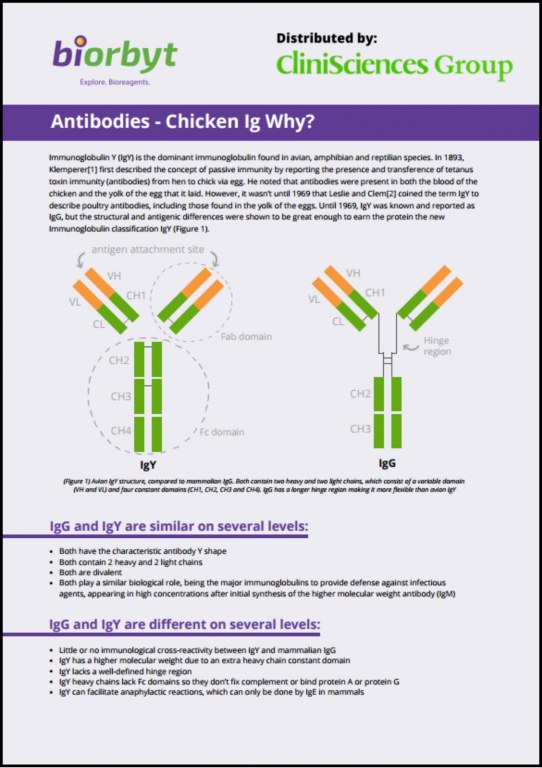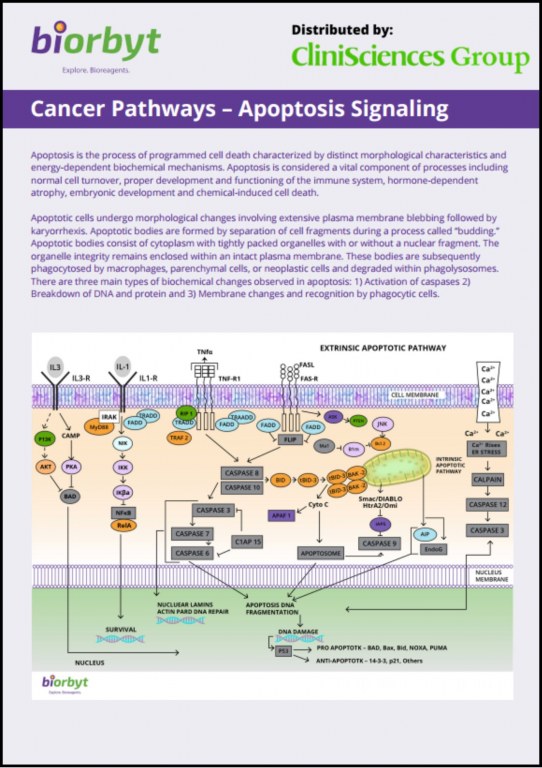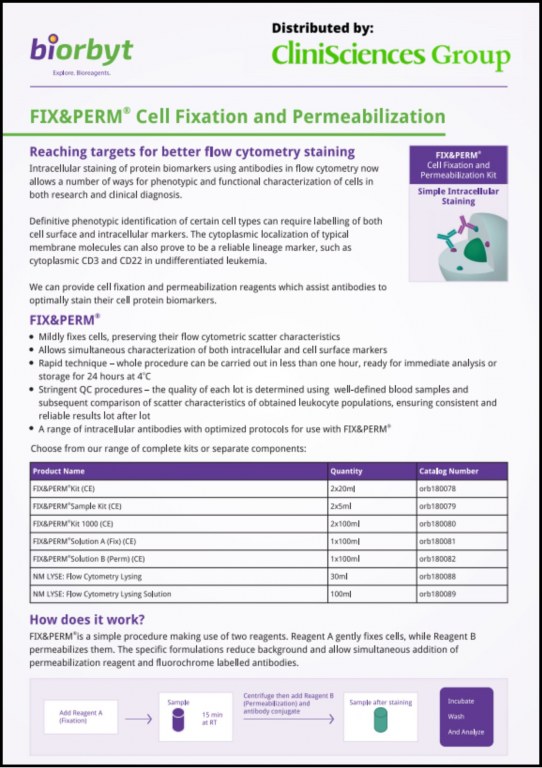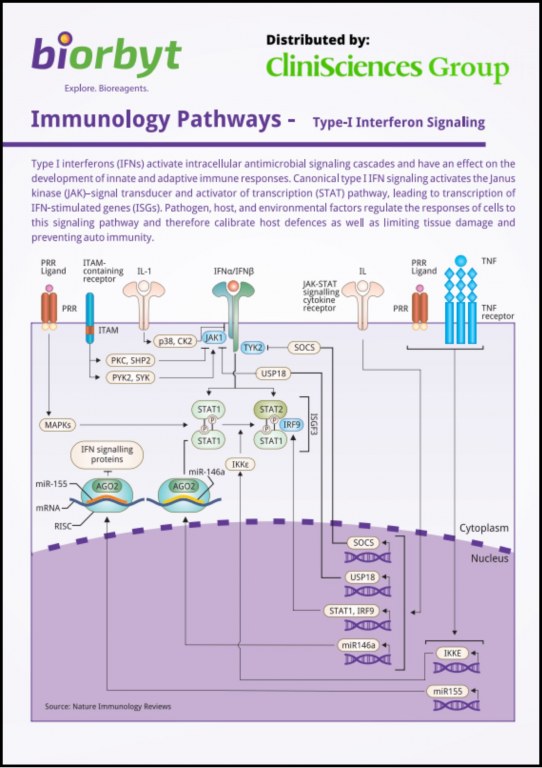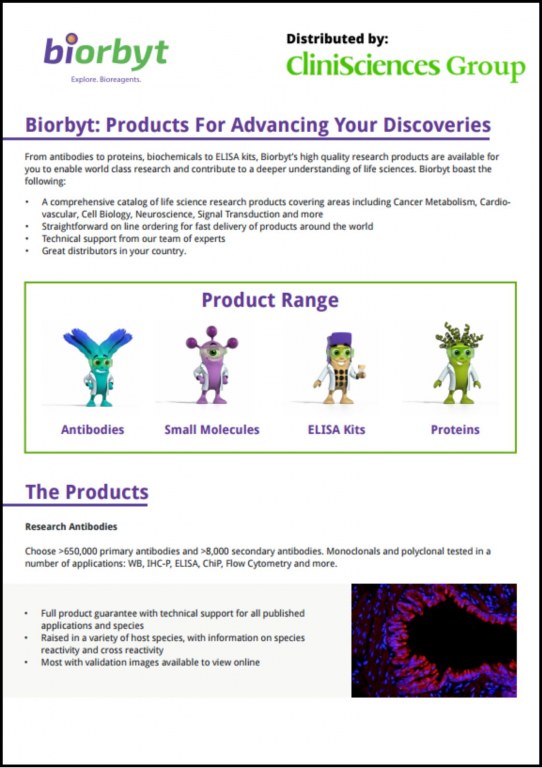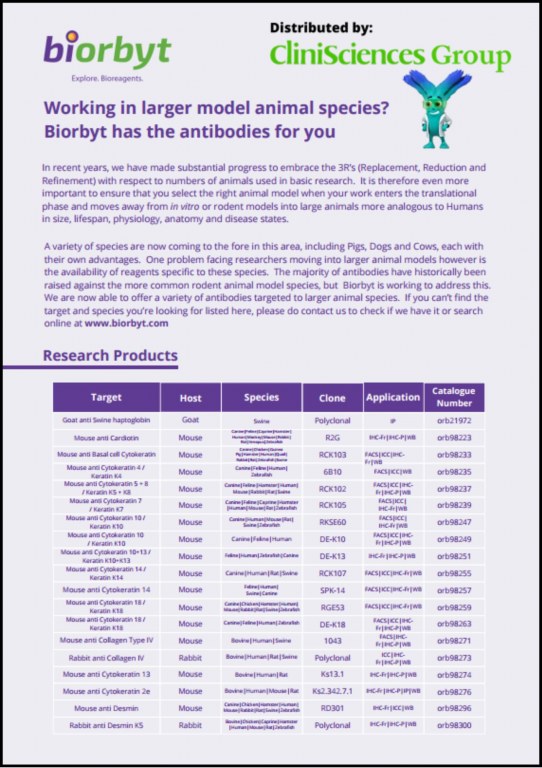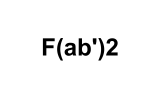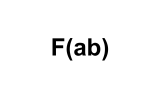Biorbyt
 |
||||||||||||||||||||||||||||||||||||||||||||||||||||
Biorbyt is a UK-based supplier specializing in life science reagents. They offer a wide range of products, including antibodies, ELISA kits, small molecules, and proteins. Researchers can choose from thousands of research antibodies and reagents for various applications. Biorbyt collaborates with top scientists and scholars to develop high-quality products, covering areas such as immunology, cell biology, molecular biology, and proteinomics. Their comprehensive offerings include immune assays, protein mass spectrometry, cell culture, custom antibody services, animal model establishment, and biochemical reagents. Biorbyt provides valuable reagents and services for biological research. With a wide selection of antibodies, assay kits, small molecules, and proteins, Biorbyt supports scientists in their experiments. They have established stable partnerships with renowned universities, research institutes, pharmaceutical companies, biotech firms, and hospitals worldwide. Biorbyt’s commitment to high-quality products and professional technical services spans immunology, cell biology, molecular biology, proteinomics, and more.
Learn more :
Watch the videos:
Website : https://www.biorbyt.com/
| ||||||||||||||||||||||||||||||||||||||||||||||||||||
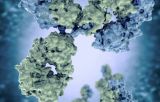
Fragmented Antibodies
Secondary antibodies are antibodies that bind to primary antibodies or antibody fragments.
Fragmented secondary antibodies are antibodies that have been enzymatically digested to remove the Fc region of the antibody, leaving only the antigen-binding Fab or F(ab')2 fragments.
These fragments are monovalent or divalent, respectively, and can be used to block endogenous immunoglobulins on cells, tissues, or other surfaces, and to block the exposed immunoglobulins in multiple labeling experiments using primary antibodies from the same species. They can also be used to label primary antibodies prior to incubation with the experimental sample. The advantages of using fragment secondary antibodies include eliminating non-specific binding between Fc portions of antibodies and Fc receptors on cells, facilitating better antigen penetration into tissue, and reducing background from primary antibody binding in double staining experiments.
The advantages of using Fab fragment secondary antibodies include:
- Eliminating non-specific binding between Fc portions of antibodies and Fc receptors on cells, which is particularly important when working with live cells.
- Facilitating better antigen penetration into tissue, which is important for immunohistochemistry (IHC) experiments.
- Reducing background from primary antibody binding in double staining experiments.
- Allowing for direct conjugation to detectable labels through their sulfhydryl groups, ensuring that the active binding site of the antibody is not affected.


